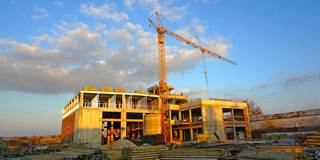Despite ongoing efforts to catalyze global development cooperation, there have been significant obstacles to progress in recent years. Fortunately, with major international meetings set for the second half of 2015, world leaders have an important opportunity to overcome them.
ROME – Despite ongoing efforts to catalyze global development cooperation, there have been significant obstacles to progress in recent years. Fortunately, with major international meetings set for the second half of 2015, world leaders have an important opportunity to overcome them.
Such a turnaround has happened before. At the turn of the century, international negotiations on economic development had also come to a grinding halt. The Seattle ministerial of the World Trade Organization ended without decision, and after two decades of the Washington Consensus, developing countries were frustrated at the US-led international financial institutions. Negotiations for the inaugural United Nations Financing for Development (FfD) conference in Monterrey, Mexico, seemed to be headed nowhere.
Then, on September 11, 2001, the United States was hit with major terrorist attacks – a tragic development that somehow catalyzed progress. World leaders agreed to begin the Doha Development Round to ensure that trade negotiations would serve developing countries’ development aspirations. And the 2002 Monterrey FfD conference produced major breakthroughs on foreign and domestic investment, foreign debt, international cooperation, trade, and systemic governance issues.

ROME – Despite ongoing efforts to catalyze global development cooperation, there have been significant obstacles to progress in recent years. Fortunately, with major international meetings set for the second half of 2015, world leaders have an important opportunity to overcome them.
Such a turnaround has happened before. At the turn of the century, international negotiations on economic development had also come to a grinding halt. The Seattle ministerial of the World Trade Organization ended without decision, and after two decades of the Washington Consensus, developing countries were frustrated at the US-led international financial institutions. Negotiations for the inaugural United Nations Financing for Development (FfD) conference in Monterrey, Mexico, seemed to be headed nowhere.
Then, on September 11, 2001, the United States was hit with major terrorist attacks – a tragic development that somehow catalyzed progress. World leaders agreed to begin the Doha Development Round to ensure that trade negotiations would serve developing countries’ development aspirations. And the 2002 Monterrey FfD conference produced major breakthroughs on foreign and domestic investment, foreign debt, international cooperation, trade, and systemic governance issues.